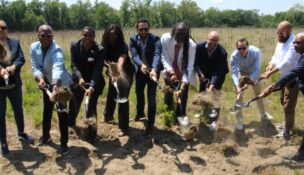Drought conditions causing problems for S.C. farmers
Staff Report //August 13, 2019//
The South Carolina Drought Response Committee upgraded the drought status for 33 counties during a conference call this week in response to below-average rainfall and soaring summer temperatures.
Nine counties were upgraded from to normal to incipient, the first level of drought, while 11 remained at incipient. Twenty-four, including Richland and Lexington, were upgraded to moderate, the second level of drought.
The drought’s effect on crops and pastures was among multiple factors driving the drought upgrades, according to Hope Mizzell, state climatologist.
Last month, the S.C. Department of Natural Resources and the S.C. Department of Agriculture asked farmers to provide updates on drought conditions they’re facing. Some Upstate cattle producers reported liquidating, or selling, their herds because of dry pastures, according to a news release from SCDNR. Other cattle farmers are feeding their herds hay harvested in the spring.
SCDNR hydrologists said during the conference call that groundwater levels remain at or above normal for most of the state, and lakes remain near their target levels. However, streamflow levels have dropped steadily during the past month, which factored into drought upgrades for most counties.
Also upgraded to moderate drought status were: Abbeville, Aiken, Allendale, Bamberg, Barnwell, Calhoun, Chester, Clarendon, Dillon, Edgefield, Fairfield, Greenwood, Horry, Laurens, Marion, Marlboro, McCormick, Newberry, Orangeburg, Saluda, Sumter and Union counties.
Only Charleston and Dorchester counties did not enter drought status.
The committee reported that, even as drought conditions intensify, water systems are not reporting supply issues.
The committee meets again the first week in September.
t














